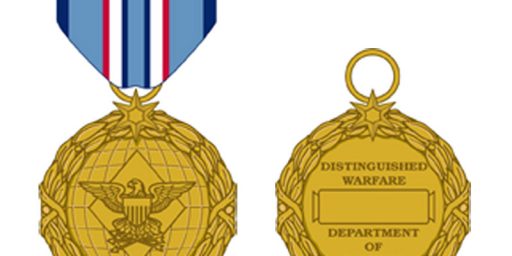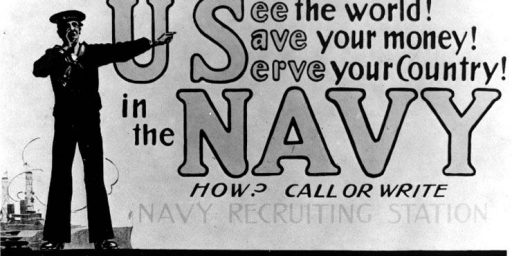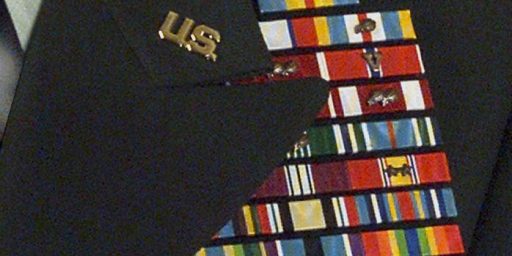Admiral James Stockdale, American Hero, Dies
Retired Vice Adm. James Stockdale Dies (AP)
Retired Vice Adm. James Stockdale was a highly decorated Navy pilot who ran for vice president as Ross Perot’s running mate in 1992, but by his own admission he was no politician. “Who am I? Why am I here?” Stockdale asked rhetorically in one of the most enduring moments of the 1992 presidential campaign, as he debated Dan Quayle and Al Gore on national television.
Stockdale, who endured 7 1/2 years in a North Vietnamese prison and earned the Medal of Honor for valor, died Tuesday at his home in Coronado at the age of 81. The Navy did not provide a cause of death but said he had suffered from Alzheimer’s disease.
Stockdale, who said he joined the race to repay Perot for working to help free POWs in Vietnam, fared poorly in his one attempt at running for office. He fumbled his way through the 1992 debate, even asking the moderator to repeat a question because he didn’t have his hearing aid turned on.
Still, he had endured far worse.
During the Vietnam War, Stockdale was a Navy fighter pilot based on the USS Oriskany and flew 201 missions before he was shot down on Sept. 9, 1965. He became the highest-ranking naval officer captured during the war, the Navy said. Stockdale was taken to Hoa Lo Prison, known as the “Hanoi Hilton.” His shoulders were wrenched from their sockets, his leg had been shattered by angry villagers and a torturer, and his back was broken. But he refused to capitulate. Rather than allow himself to be used in a propaganda film, Stockdale smashed his face with a mahogany stool. “My only hope was to disfigure myself,” Stockdale wrote in his 1984 autobiography “In Love and War.” The ploy worked, but he spent the next two years in leg irons.
After Ho Chi Minh’s death, he broke a glass pane in an interrogation room and slashed his wrists until he passed out in his own blood. After that, captors relented in their harsh treatment of him and his fellow prisoners.
Stockdale spent four years in solitary confinement before he and 115 fellow prisoners were freed in 1973. When asked by a reporter if he knew a man had walked on the moon, Stockdale replied, “No, I did not.”
It’s truly a shame that his performance in that debate is the first line in Stockdale’s biography, but that was his introduction to most people under the age of 50. The irony is that Stockdale, in addition to having the fortitude to endure more pain than most of us can imagine, was an incredibly intelligent man who had a post-Navy career as president of the Citadel and as a scholar at the prestigious Hoover Institution. A few minutes of live television created a permanent false impression of the man.
Elsewhere:
Michelle Malkin has Stockdale’s Medal of Honor citation and a roundup of other reactions.
Jeff Quinton notes, without explanation, that Stockdale’s relationship with the Citadel was “not good.”
Will Franklin calls Stockdale “a true American hero.”
John Hinderacker has a photo of Stockdale from the week before his capture.






“Fair winds and following seas.” Keep his family and him in your prayers.
As I recall, VAdm Stockdale had a rocky relationship with some of the “old boy” network of alumni and other supporters that had great influence at the Citadel. His philosophy of leadership clashed with some of the elements that the esteemed Military College of South Carolina held dear (I’ve forgotten the specifics, but seem to remember the differences reflected poorly upon the prevailing ethic at the Citadel).
I was almost literally in pain watching him in that debate. I knew little of him before that, but what I did know was good. He came across to me as a good man who was ill-prepared for the national stage.